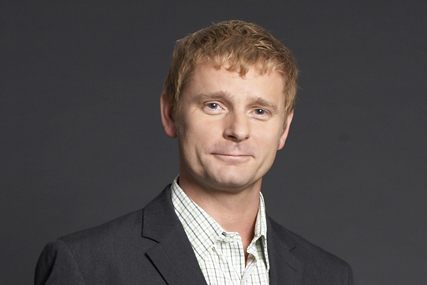Back in the 90s, all the talk was about convergence - the idea that technological devices would evolve to perform similar tasks. Then, we had a TV that showed programmes and stuff we had taped. With games consoles, if we wanted to play other people, they had to come round to our house. We had a mobile, but it was really used only for calls - it didn't even have a camera on it, and although it sent texts, these weren't popular. If we had a computer, it probably wasn't connected to the internet, and it didn't have a soundcard.
The convergence idea was that all these devices would become capable of each other's purpose, and although it caused controversy at the time (the chairman of one media agency ridiculed it, saying nobody would watch TV on their computer) it's now so accepted that nobody really uses the term any more. We think nothing of Skyping relatives in Australia or using our phone to email, while TV apps are one of the fastest-growing uses of iPhones and iPads.
The big screen in our living room, however, has steadfastly resisted all this. A frenzy of innovation over the past few years has created Apple TV, Google TV, Sky Anytime and internet TV, but no clear answer for consumers. Nonetheless, manufacturers are building internet TVs, not as added value, but in an attempt to 'own' the gateway into consumers' homes. While this battle plays out, what's more immediate is what's happening to TV as other devices start to work in synch with it.
Tablets and smartphones, far from being used exclusively out of home, are taking on a role inside the home, alongside the TV.
If you've ever followed Twitter during the BBC's Question Time, it's clear there is an active parallel universe alongside TV as viewers interact with each other. They are highly engaged, but risk becoming diverted from the broadcast content. Brands and broadcasters have a challenge to keep viewers in the fold - hence platforms such as Loyalize that provide games, promotions and participation mechanics for brand and content owners to build around TV programmes for consumption on tablets and smartphones.
There are apps that turn a tablet into a feature-rich remote control for users to share, download and navigate content to display on the device or the big screen. One blogger enthuses about how he can flick through programmes on his iPad while his wife watches the TV, throwing them up to the main screen when they have agreed what to watch next. As continuity editor, he is consuming a parallel stream of metadata alongside the TV broadcast.Content owners will have to evolve their marketing to respond to this.
Finally, mobile devices are becoming the tool viewers use to find out more about the products they see on TV. We have measured this effect for some time, with web traffic driven by TV advertising, but in their role as sidebar to the main screen, tablets could accelerate this trend. Advertisers will have to understand how consumers share attention between devices, and how to use the tablet to amplify what's on the big screen instead of distracting from it.
So the convergence cycle has almost played out. Now we're seeing divergence, as users evolve their behaviour around connected and interoperable devices. Regardless of how TV develops, it's no longer playing alone in the living room.
Andrew Walmsley is a digital pluralist
30 SECONDS ON ... QUESTION TIME
- Question Time is one of the BBC's highest-profile topical programmes. First broadcast in September 1979, it follows a debate format, with questions from members of the studio audience being answered and debated by a panel usually comprising representatives of the three biggest political parties and two further public figures.
- During general election campaigns, the panel format is generally dropped in favour of programmes featuring individual party leaders.
- The original chairman was legendarily merciless interviewer and veteran journalist Sir Robin Day, known as 'the grand inquisitor'; he was succeeded by Peter Sissons. David Dimbleby has chaired the programme since 1994.
- The show gained its Twitter presence, @bbcquestiontime, on 24 September 2009. The following month, it had one of its biggest responses to date when BNP leader Nick Griffin appeared, with more than 1000 tweets a minute using the #bbcqt hashtag at one point during the broadcast.


